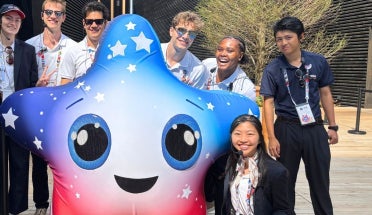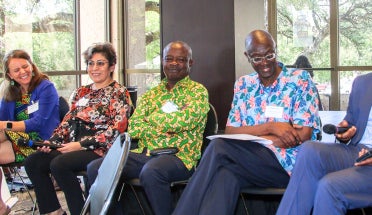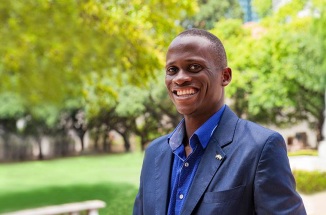
Entrepreneur From Benin Promotes Literacy Through Digital Solutions
- Oct 5, 2018
Augustino Agbemavo may be a young professional, but he is not a rookie in the business. When he was 17, he created a library in his community in Benin because the closest library was more than 30 kilometers away.
“Our region holds the highest number of students in Benin, but there was no public library,” he said.
After a few years managing the library, Agbemavo was inspired to start another project: a mobile and virtual library and bookstore. Called Reading Power, Agbemavo’s startup has reached more than 1,500 students since opening in 2016 through visiting schools and bringing books for students to borrow for only 50 cents each.
His determination to improve literacy in his community is what brought him to Austin for the Mandela Washington Fellowship for Young African Leaders. This past summer, Agbemavo spent six weeks at UT as part of our business and entrepreneurship institute.
Before coming to Austin, Agbemavo’s goal was to sharpen his entrepreneurship skills and learn about business management from social businesses in the U.S. He also hoped to explore ways to expand his library’s digital platform.
“I wanted to learn more about available digital solutions and new models of managing them,” he said. “Also, I was looking for new business models to implement, in order to increase our revenue and be sustainable.”
Agbemavo highlights the academic components of the program as especially impressionable, nodding in particular to academic director John Doggett and Professor Charlee Garden, whose methodology and teaching styles were new to him. He appreciated how the coursework allowed him to look at different case studies and a simulation through the Harvard Business School platform.
“It was very interactive,” he said. “It pushed me to be more attentive, more participative and to take initiatives, unlike my previous experiences.”
But Agbemavo’s learning did not take place just inside the classroom. He also had the opportunity to collaborate with a local peer and attend multiple site visits to Austin businesses and nonprofits. Through conversations with professor Doggett and his classmates, Agbemavo identified an opportunity to incorporate eBook options like Kindle and Nook in his business in Benin.
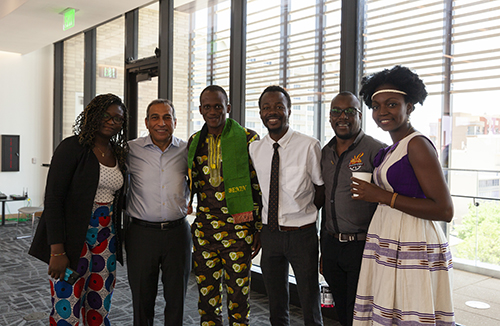
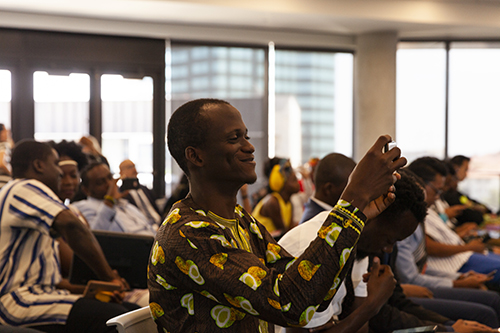
“I bought two Kindles and two Nooks, and I downloaded some virtual comics books,” he said. “When I visit schools in the future with hard copies of books, I will also present the Kindle and Nook which contain eBooks to students. They can decide whether to borrow [hard copies] or read eBooks.”
Agbemavo, now back home in Benin, is also implementing a new strategy to build his library’s inventory. He wants to create a secondhand market for graduate students so that they can earn more money by selling and buying used books at a discounted price.
In five years, Agbemavo believes his business will be the No. 1 library and bookstore in West Africa, and in ten years, he aims to be one of the world’s leading social entrepreneurs.
Being a Mandela Washington Fellow has brought him a step closer to his goal.
“This program has helped me to improve my business model and find suitable partnerships to scale up,” he said. “It increases my network and gives me a certain credibility to obtain the trust of peers, future investors and educational institutions.”
Ultimately, Agbemavo believes in Africa’s potential and wants to take part in its progress.
“We have so many opportunities in Africa but we are not yet able to use those opportunities to develop our different countries,” he said. “This program opens our eyes and makes us more conscious about our challenges and what to do to overcome them. It also allows us to improve our leadership and entrepreneur skills, learn from the best professors at one of the best universities and extend our network.”
Learn more about the Mandela Washington Fellowship for Young African Leaders.


